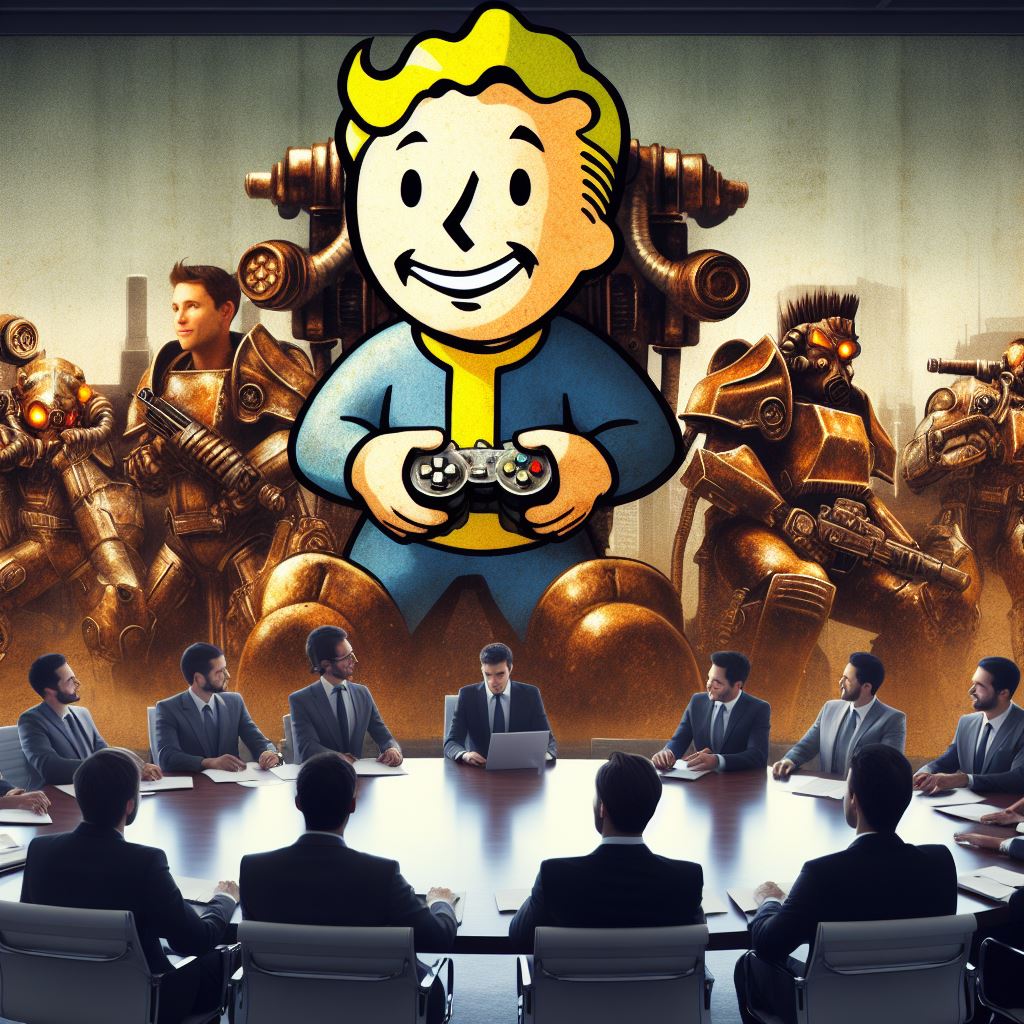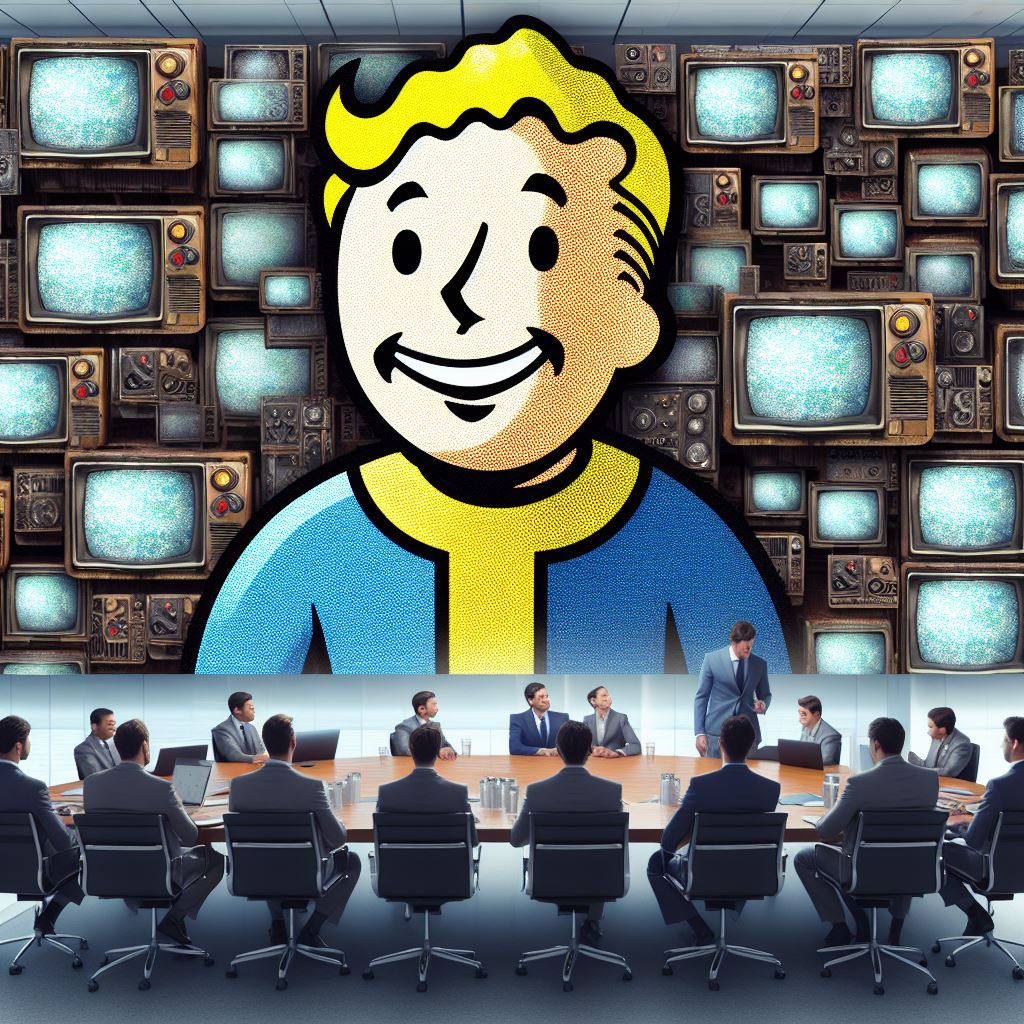
When I initially realized that Fallout had been released on Amazon Prime last week, I instantly wanted to watch the new video game adaptation. What seemed like a fun show based off of Bethesda’s popular series made it quickly apparent that the messages that comical survivors in the nuclear apocalypse had were much more applicable to the un-irradiated America we all know today. **This will contain spoilers for the first season of “Fallout.”
As someone who had never played a Fallout game in their life, I quickly ignored angry gaming fans claiming that the new show had retconned aspects of popular game “Fallout: New Vegas.” While fan hype as well as backlash is common in nearly every piece of comtemporary media we consume based off of reputable source material, I consider myself lucky to have been able to dodge making a critical opinion on aspects of the game supposedly squashed by the show. I guess ignorance really can be bliss at times.
The most important takeaway I had gotten from watching the first season in just three days was how vastly neoliberal tendencies contributed and applied to the dispositions our tritagonists endured during these eight episodes. While many Americans often praise Neoliberal policies for their efficiency in development and innovation, the ousting of strict government regulation over the economy and production, as well as boasting opportunity it creates for individuals in the market, deeming economic freedom as true freedom, I felt as if the show displayed many of the critiques of Neoliberalism that many tend to turn their cheek to.
Neoliberal critique has found its way into many political courses across private universities across the United States. Such classes implement critiques from scholars such as Wendy Brown and David Harvey to show the risks associated with living in a neoliberal society. The main criticism from such thinkers that applies to this show includes the fact that economic freedom is seen as the ultimate freedom and that people within the United States are constantly expected to market themselves with the clear objective of becoming more profitable. In addition to this, Neoliberalism’s attitudes toward deregulation have allowed many companies to bypass standard norms within government and societal institutions in the name of gaining profits and consolidating fiscal loss over providing for the consumer and the worker of such companies.
Such criticism becomes shockingly evident at the end of the first season when it is revealed that the “Ghoul’s” wife, as well as main protagonist and Vault 33 resident Lucy McClean’s father, controlled large multi-million dollar corporations in the United States before the nuclear bombs went off that fractured the nation. They were able to preserve their bodies in a long-term state of hibernation in order to survive for over two centuries. It is revealed that Hank McLean, Lucy’s father, was among many CEOs who were dissatisfied with “VaultTech’s” profit margins. VaultTech, being the company in the Fallout series that creates large nuclear bunkers to ensure that the American Dream lives on after the war, implies that it intends to set off nuclear bombs across the nation, as it is hinted to throughout the series that there is much money to be made in advertising the end of the world.
The ways in which the logic how why these CEO’s decided to initialize “MAD” (Mutually-assured destruction) tie into prominent aspects of Neoliberalism, such as the privatization, ownership, and control of people as well as an overwhelming loyalty to corporate investors in terms of returning profit. Such ideas throughout the series that are played with are also infused into the characters, such as Lucy, who are brainwashed by the various factions that control the United States after the bombs go off and much of the fallout’s half-life renders it less toxic and life-threatening.
One of the main reasons why many companies supported VaultTech’s ideas to initiate nuclear destruction involved the idea of control, where many CEOs were promised their own vaults to control, in a way a competition of which way of establishing and growing a society would be best for rebuilding the world in the image of VaultTech.”

Of course, much of this idea is proven to be misconstrued and conflates with what was not expected, that many factions on the surface survived and created new societies. Another example of how such critique is carried out further into the show is in regard to a new community at “Shady Sands,” which was the capital city of the “New California Republic. As this city was able to flourish in a seemingly barren nuclear wasteland, it is revealed that it was in fact VaultTech that destroyed the city and the majority of the people living in it, as it was seen as competition to the corporate models that VaultTech had conceptualized for its stakeholders in establishing a new world order.
The last important aspect of Neoliberal critique associated with this show lies within the threat Neoliberalism wants to take by extending itself into what Wendy Brown refers to as the “personal sphere.” This can be seen in many different ways, such as how nursing homes struggle to accommodate people who have worked, gone to war, and paid taxes for over half a century, as well as forcing people to analyze themselves through a lens of monetization.
This can be seen through the three different characters of the show. For the Ghoul, his entire family’s identity was eclipsed along with their values due to his wife’s loyalty to a system assuring profits as well as control. While she did express self-interest in saving her family, the theme of dying by values over living through vices is portrayed throughout the show. For Lucy, her identity is forged in Vault 33, she represents how people objectively within a society act with ideas of progression in a system that does not truly fulfill their needs and wants. With Maximus, his ideas of finding an authoritarian state to identify with can also be seen through a neoliberal lens, as those within the Neoliberalist societies believe that anything BUT mass privatization, lack of corporate regulation, as well as the extension of neoliberalism into the personal sphere, can be seen through the analogy of the Brotherhood.
While this show was a comedic fresh breath of air, and certainly a good marketing strategy to get more people to buy the Fallout games, I think the messages it tells to Americans about Neoliberalism need to be taken more seriously, especially as tensions between the United States and Russia, China, and Islamic states worsen and in the face of climate change.
***Images used in this free article were generated using A.I image creation tools.